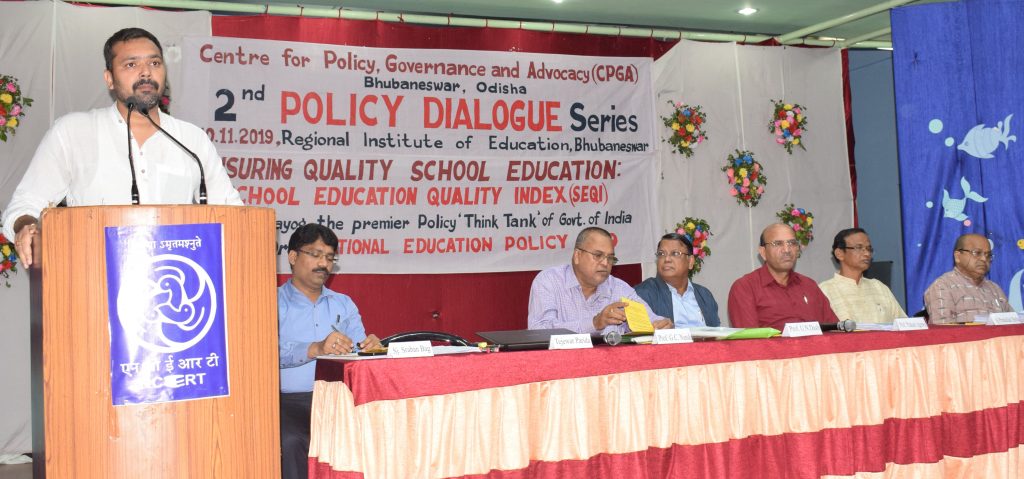Bhubaneswar: The National Education Policy is in the offing and educationists in the state have observed that Odisha has room for lot of improvement in different areas despite its rise in school education index rankings.
The Centre for Policy Governance and Advocacy (CPGA) held its second policy dialogue here at Regional Institute of Education. On the occasion a panel of eminent educationists discussed the quality of school education in the state which forms a key indicator in Human Development Index (HDI) of the country.
Presiding over the event Tejeswar Parida, Chairman for CPGA said, “While the draft National Education Policy focuses on development of education at school and college, the focus on former is a must as it forms a key subject in growth of HDI. The constant falling of ranking in the country HDI is due to the poor quality of school education.”
The Human Development Index (HDI) is a statistic composite index of life expectancy, education, and per capita income indicators, which are used to rank countries into four tiers of human development. According to latest rankings, India’s position was at 130 among 189 countries in the latest HDI chart.
School Education Quality Index (SEQI) a key area of HDI, has ranked seventh. This was registered as a significant improvement with a six-point jump in the index compared to last year.
According to the index, whose base year has been set as 2015-16 and reference year set as 2016-17, Odisha recorded impressive incremental performance, from an overall 47.8 per cent score in 2015-16 to 60.2 per cent score in the following year.
However, panelists at the event were of the opinion that the improvement overlooks some key aspects that require immediate attention. “For instance if one goes to a government school in a rural area, there would be separate toilets for girls but what gets overlooked is whether that toilet has an overhead water tank. Similarly vocational training in Odisha is also very poor but these factors get masked under improved infrastructural demand,” Parida added.
The experts were also of the opinion that the upcoming national education policy will only get a nation-wide success when it considers the issues of each nation as ‘one fits all’ does not help education of different states.
“The new Education policy has many shortcomings. It lacks an India-centric approach and needs many tweaks and turns. With time the policies of Education should also be changed and a more holistic viewpoint should be taken,” said Pritish Acharya, an educationist.
Among the other panel members involved in the dialogue were U. N. Dash, former department head at Utkal University, G.C. Nanda, Principal at Utkal University, Prakash Chandra Agarwal, prominent academician, Prahallad Kumar Sinha, former advocate and Sraban Bag Assistant Professor at Sambalpur University.
